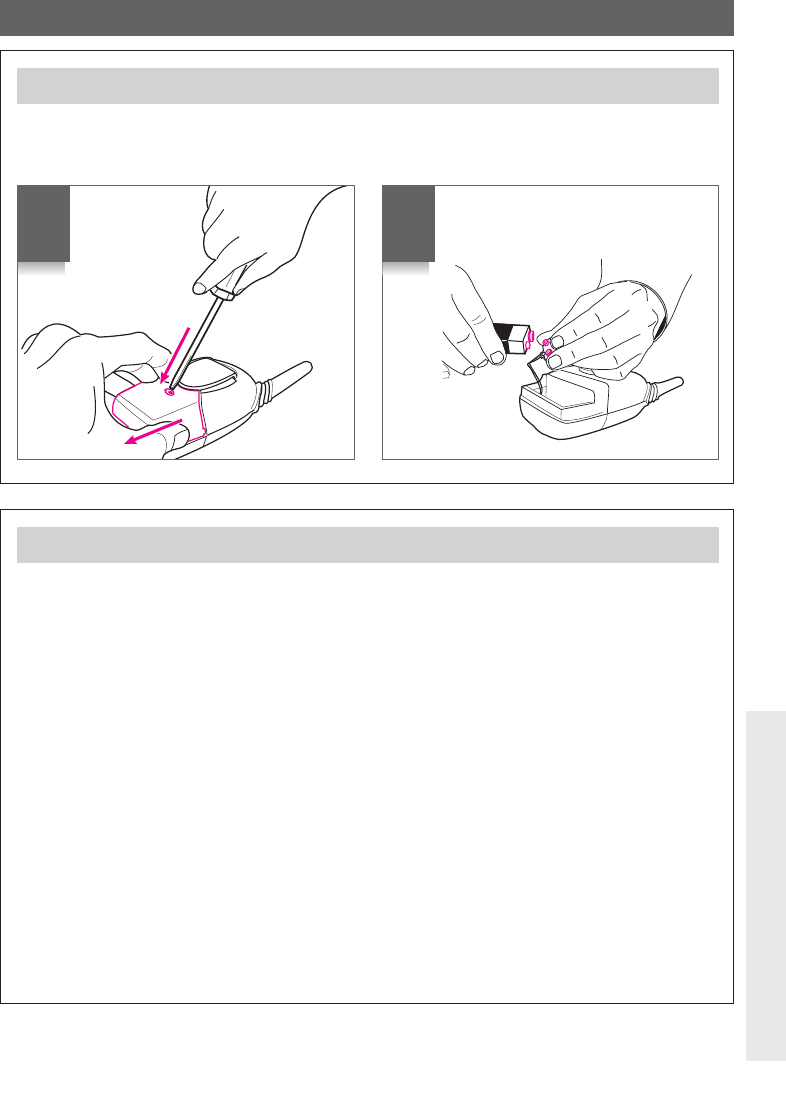
8
906-2-02
Testing the System
It is VERY IMPORTANT to test the system when first set up, and at regular times thereafter.
Test the units any time they may have been damaged or have not been used for a long time.
1. If two adults are present, have one take the Parent Units to different locations, trying various
volume settings, while the other speaks into the Nursery Unit.
2. If only one adult is available, place a ticking clock, radio, or other sound-producing device
near the Nursery Unit to test it.
3. When testing, keep the level of your child’s sounds in mind, and adjust the
volume accordingly.
4. If there is sound interference, switch the Nursery Unit and the Parent Units to the other
channel setting (page 7).
NOTE: As with all radio frequency devices, transmission range and reception may vary. Your Nursery
Monitor uses public airwaves, so it is possible for conversations near the Nursery Unit to be broadcast to
other nursery monitors, radios, cordless phones or scanners outside your home. For your privacy,
always turn off the Nursery Unit when not in use.
This monitor operates on one or more of the following frequencies: 925.7-927.5 Mhz and
902.5-904.3 Mhz.
Setting Up the Baby Monitor
1. Check that Nursery Unit and Parent Units are set to the same channel.
2. Place the Nursery Unit within 10 feet (2-3 meters) of your baby. Plug an AC adapter into the
jack on the side of the Nursery Unit. Plug it into a working 120 volt AC outlet.
3. Aim the Nursery Unit toward your baby. Check that there are no walls or large objects that
could block sound transmission.
4. Turn on the Nursery Unit using the ON/OFF switch. The green power light should come on.
5. Install 9 volt batteries into the Parent Units, or plug them into a working 120 volt AC outlet
using the other two AC adapters.
6. Turn on the Parent Units using the volume control dial. The green power light will come on.
21
906-2-02
Configuración del sistema
Instalación de la pila
Consejos para el uso de pilas
Las unidades de los padres operan con una pila de 9 voltios. Se recomienda una pila alcalina.
Sólo adultos deben cambiar las pilas.
• Si no se va a usar durante mucho tiempo, quite la pila de la unidad de los padres.
• Si la pila está agotada, cámbiela inmediatamente. Si se deja una pila agotada en la unidad,
fugas pueden dañar la unidad.
• No intente recargar una pila que no es recargable.
• Un pila recargable NO SE PUEDE cargar enchufando el adaptador VCA a la unidad de los
padres. Quite la pila de la unidad para recargarla.
• Sólo adultos deben recargar las pilas.
• La pila no se consume si la unidad de los padres está conectada al adaptador VCA. No es
necesario quitar la pila cuando se usa el adaptador VCA.
• Cambie la pila si:
• Empeora la recepción de la señal.
• Aparecen interferencias (también verifique que no haya interferencia de electrodomésticos).
• La luz de encendido verde se enciende intermitente y continuamente y el sonido
queda apagado.
1 2
ESPAÑOL


















